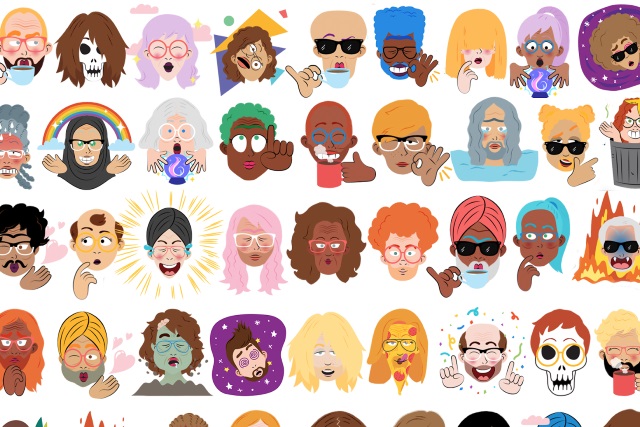
Google will create custom emoji from your selfies in Allo
Users of Google Allo can now use selfies -- and a little AI jiggery-pokery -- to generate a custom set of emoji. Or, as Google puts it, users can now benefit from "Neural Network-Generated Illustrations in Allo."
Working in a similar way to the existing Bitmoji idea, Google's nameless feature will transform a simple selfie into a customizable illustration -- emoji with greater character, more personality. In fact, the system doesn't just create a single emoji, it creates a full sticker pack.
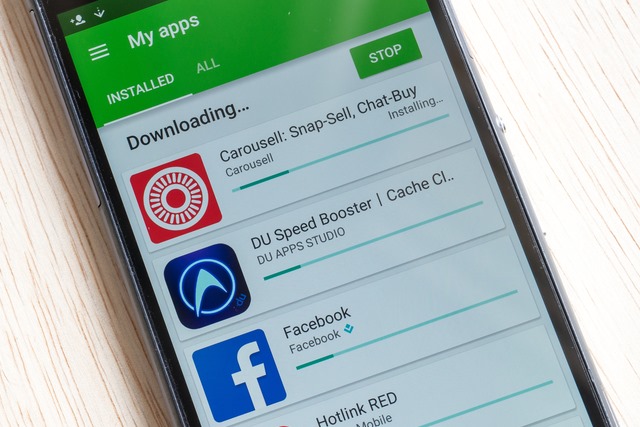
Serious app permissions flaw will not be fixed until Android O, leaving users at risk
The security of Android has been questioned many times, but the general thinking is that installing apps from Google Play offers a decent level of protection. But research by Check Point shows that this is not the case due to a flaw in permissions.
The permission model used by Google grants apps installed from the Play Store extensive access, and opens up the risk of malware, ransomware and other threats. Google is aware of the problem, but does not plan to address it until the release of Android O, meaning that an unknown number of apps pose a risk to millions of users.

Microsoft fixes 'crazy bad' Windows vulnerability
Over the weekend, two of Google’s Project Zero security researchers announced that they had discovered a "crazy bad" Windows exploit, describing it as the "worst in recent memory."
Project Zero gives firms 90 days to fix such discoveries, but Microsoft swiftly jumped on this problem, and just two days later has come up with a fix.

Google Project Zero security researchers discover 'crazy bad' Windows exploit
Google’s Project Zero identifies bugs and security flaws in commonly used software, and gives firms 90 days to patch them before going public. This is an approach which doesn’t always go down well -- a case in point being when Google recently released details of a Windows bug after Microsoft failed to patch it in time.
Now two Project Zero security researchers claim to have found a new critical remote code execution (RCE) vulnerability in Windows which they describe as the "worst in recent memory" and "crazy bad".
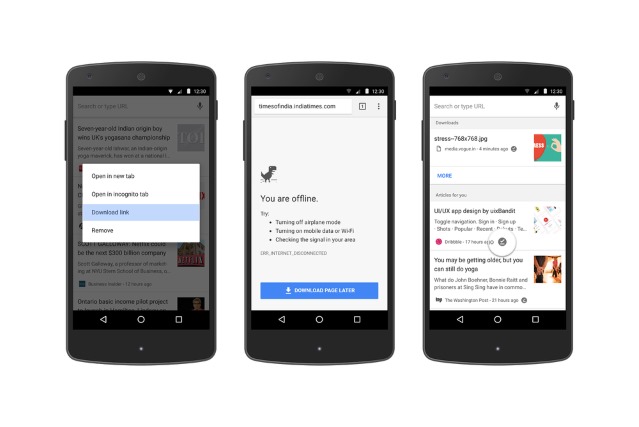
Google just made offline browsing a whole lot easier in Chrome for Android
Offline web browsing is a useful feature, particularly on a smartphone, so it was little surprise when Google added website downloading to the Android version of Chrome. Today the company launches a number of improvements to make the whole process even easier.
The latest update to the app introduces a couple of new ways to download pages for offline viewing. It also provides easier access to the content you have earmarked for offline reading, encouraging more people to make use of the feature.
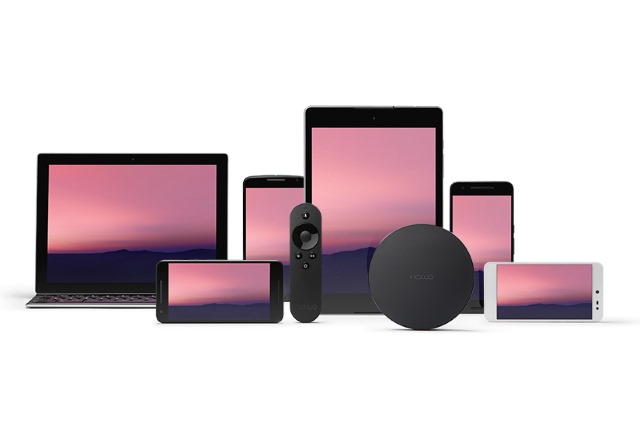
Android Nougat beta ends as Google prepares for imminent launch of Android O beta
Google is preparing to launch the Android O beta, and ahead of this the company has officially closed the Android Nougat beta program. We've already seen a developer preview of Android O, and a second release is due later this month.
But many Pixel and Nexus users are waiting for the Android O beta as the developer preview is not really intended for public consumption. While we're not really any closer to knowing for sure when the new beta program will begin, we're clearly nearing the time that Google will make an announcement.

Is a Google-made Chrome ad-blocker the answer to intrusive advertising?
In case you missed it, rumors are rife that Google will soon introduce an ad blocker in Chrome. Understandably, there's concern about the power that would give Google over the advertising industry and its competition. As a member of said competition, I am equal parts concerned and supportive of an ad blocker in Chrome.
It’s certainly an interesting story. On first thought it’s a little ironic, in that a company which makes a large proportion of its money through advertising revenue is not only giving users of its browser the ability to block ads from appearing, but turning it on by default too. If the rumor is true, the addition of an ad blocker in Chrome could limit the reach of ads to over half of the world’s internet users overnight. That’s a big change, and in many instances it’s needed.

Google Photos gets 'Mother's Day Movies' feature
We are finally in the month of May, meaning the holiday of Mother's Day is almost here. If your mom is still living, you should take the opportunity to spend time with her on that day. If traveling to her is not possible, picking up the phone is a good option too. Whatever you can do to make her feel loved and appreciated is a positive thing.
If your mom -- or any mother in your life -- is tech-savvy and uses a computer, Google Photos has a new feature that could really make her day. Called "Mother's Day Movies," it prompts you to select multiple photos of the mom and her children from your Google Photos library. The service then creates a "movie" using the images, which you can share with her.
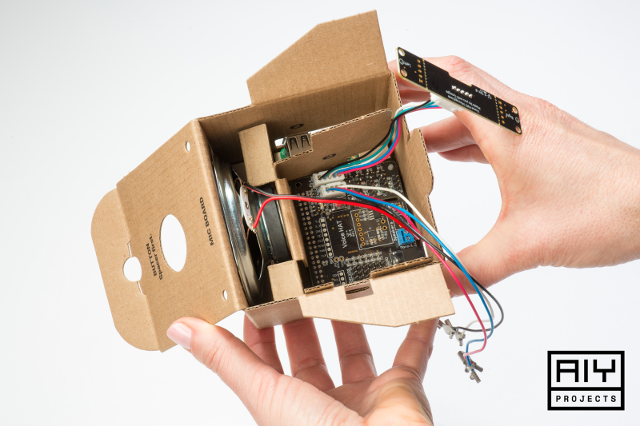
Google releases DIY open source Raspberry Pi 'Voice Kit' hardware -- here's how to get it
Google has long been focused on artificial intelligence. Its Google Now and voice assistance projects have used AI to better the lives of users. The Google Home voice-based hardware unit brings its assistant to life, making traditional inputs and displays unnecessary. With just the power of your voice, you can interact with the device -- nothing else is needed.
The search giant has decided to take artificial intelligence to the maker community with a new initiative called AIY. This initiative (found here) will introduce open source AI projects to the public that makers can leverage in a simple way. Today, Google announces the first-ever AIY project. Called "Voice Kit," it is designed to work with a Raspberry Pi to create a voice-based virtual assistant. Please keep in mind that the Pi itself is not included, so you must bring your own. For this project, you can use a Pi 3 Model B, Pi 2, or Pi Zero. Want a Voice Kit? Here's how to get it. Heck, you might be getting one for free and you don't even know it.
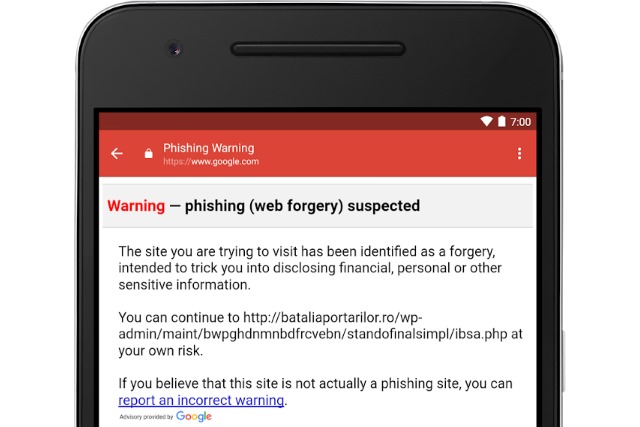
Google adds phishing protection to Gmail app on Android
Gmail users will now be protected from phishing attacks on their Android phones thanks to a new update from Google. The company is rolling out a new security feature similar to that found in the web version of Gmail, warning people when an email contains a suspicious link.
For now, the update is only rolling out to Android users, and Google has not indicated whether it will make its way to iOS in due course or not. The update comes just shortly after a phishing scam emerged in which recipients were encouraged to click on a link to open files purporting to be stored on Google Docs.

Windows 10 S is not for you, that's why you hate it
Many people don't seem to understand who Windows 10 S is for. That's why you'll read many comments and stories, including here at BetaNews, saying that Microsoft has introduced a crippled version of Windows 10 that will not appeal to anyone or that the operating system is only here to get people to pay an upgrade fee to the "proper" Windows 10. They're missing the point... by a mile.
If you look at the context in which Microsoft unveiled Windows 10 S, which is its #MicrosoftEDU event, you'll understand that this operating system has a specific scope. It's here so that educators and students who have complained of the complexity of using Windows and migrated to Chromebooks can fall in love with Windows again. That's it. There is no conspiracy, and there's nothing more to it.
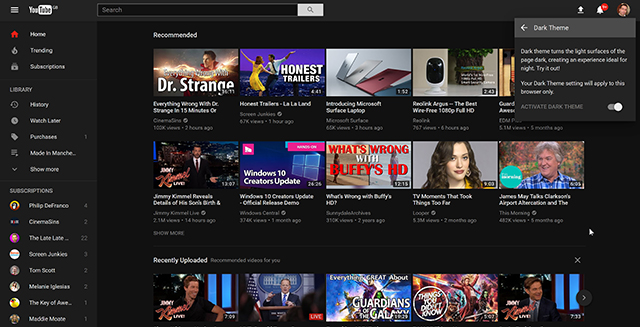
How to activate YouTube's new Dark Theme and more
Three weeks ago, we explained how you could enable YouTube’s hidden Dark Mode. The process then only worked in Chrome and required a little tinkering.
Google has now made it possible for anyone to easily switch to the dark side, and that’s not all. There’s now a whole new Material Design look for the site which Google says will make YouTube "easier and more fun to use."
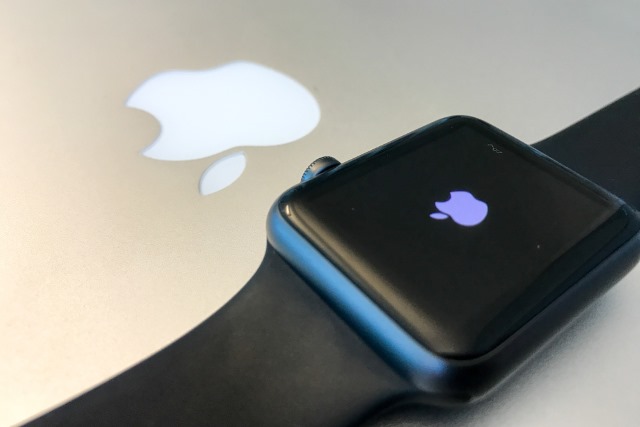
Is interest in Apple Watch on the wane? Big-name apps drop support for the wearable
It would appear that the Apple Watch is losing its shine. A number of big-name apps have dropped support for the wearable, including Google Maps, Target, eBay and Amazon. It's not clear exactly why support was dropped, but as it took a little while for users to notice and start complaining on social media, a general lack of interest is likely to blame.
Google has offered a vague promise that Google Maps will return to Apple Watch "in the future," but gives no sense of timescale, and there are no similar assurances from any of the others who have quietly killed off their apps.

Microsoft is replacing the password -- what's taking its place?
It was supposed to have died a long time ago, but, for a near-cadaver, the password has managed to hold onto its last breath for over two decades. Bill Gates declared passwords passé way back in 2004, but it was only late in April that the company he founded introduced a replacement for the outmoded authentication system.
For years, organizations have sought to educate employees about the importance of secure passwords and of resisting phishing attacks -- and both efforts have failed. A Verizon report indicates that 63 percent of confirmed data breaches involved leveraging weak/default/stolen passwords in 2016. Meanwhile, a new report from Proofpoint says that phishing and similar attacks using e-mail were up 45 percent in the last quarter of that year. Clearly, the constant haranguing by security teams of employees to change their passwords and make them more complicated, as well as their pleas not to click on suspicious links/attachments, are falling on deaf ears.
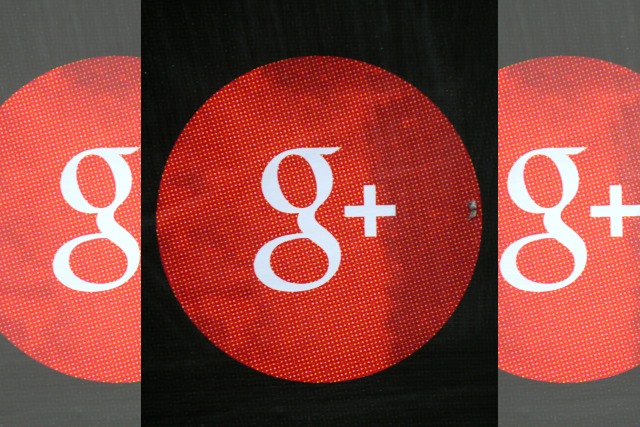
Google still hasn't given up on Google+ and Topics is the latest attempt to keep people on the service
Google+ finds itself the butt of many a joke, but the company behind the service is happy to proclaim that "millions of people use" it. There are already numerous ways to discover content on Google+, and now there's yet another: Topics.
This is essentially Google's take on the idea of related content, and it's a bid to keep users on the site -- or in the app -- for longer. Not content with having people reading what they set out to read, now additional "Topics to explore" will be suggested.
